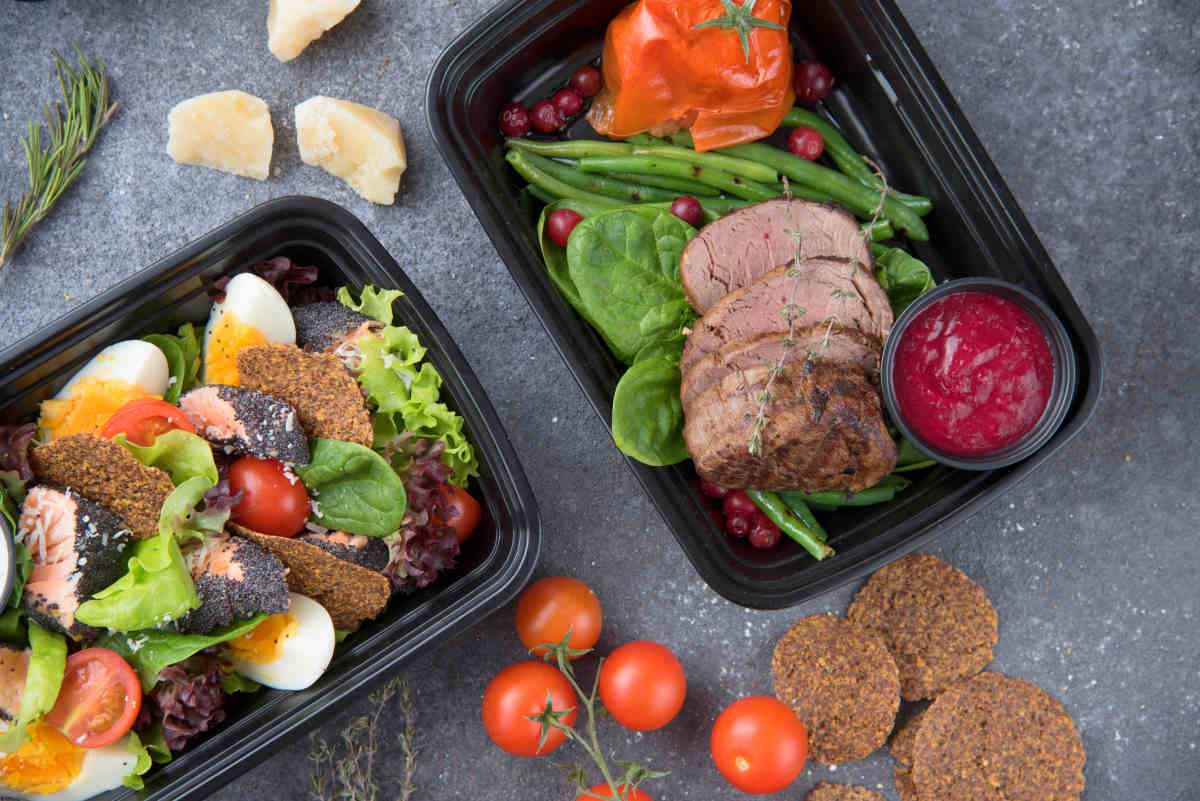Understanding Net Carbs Ketogenic Diet

Keto vs. Non-Keto
Quickly compare keto-friendly foods with non-keto options for easy reference
Use this wallet card to make informed food choices while shopping or dining out
Identify fake keto foods and ingredients that you should avoid
Simplify decision-making with clear, practical guidelines

Keto vs. Non-Keto
Quickly compare keto-friendly foods with non-keto options for easy reference
Use this wallet card to make informed food choices while shopping or dining out
Identify fake keto foods and ingredients that you should avoid
Simplify decision-making with clear, practical guidelines

Keto vs. Non-Keto
Quickly compare keto-friendly foods with non-keto options for easy reference
Use this wallet card to make informed food choices while shopping or dining out
Identify fake keto foods and ingredients that you should avoid
Simplify decision-making with clear, practical guidelines

Keto vs. Non-Keto
Quickly compare keto-friendly foods with non-keto options for easy reference
Use this wallet card to make informed food choices while shopping or dining out
Identify fake keto foods and ingredients that you should avoid
Simplify decision-making with clear, practical guidelines

Keto vs. Non-Keto
Quickly compare keto-friendly foods with non-keto options for easy reference
Use this wallet card to make informed food choices while shopping or dining out
Identify fake keto foods and ingredients that you should avoid
Simplify decision-making with clear, practical guidelines

Keto vs. Non-Keto
Quickly compare keto-friendly foods with non-keto options for easy reference
Use this wallet card to make informed food choices while shopping or dining out
Identify fake keto foods and ingredients that you should avoid
Simplify decision-making with clear, practical guidelines

Keto vs. Non-Keto
Quickly compare keto-friendly foods with non-keto options for easy reference
Use this wallet card to make informed food choices while shopping or dining out
Identify fake keto foods and ingredients that you should avoid
Simplify decision-making with clear, practical guidelines

Keto vs. Non-Keto
Quickly compare keto-friendly foods with non-keto options for easy reference
Use this wallet card to make informed food choices while shopping or dining out
Identify fake keto foods and ingredients that you should avoid
Simplify decision-making with clear, practical guidelines

Keto vs. Non-Keto
Quickly compare keto-friendly foods with non-keto options for easy reference
Use this wallet card to make informed food choices while shopping or dining out
Identify fake keto foods and ingredients that you should avoid
Simplify decision-making with clear, practical guidelines

Keto vs. Non-Keto
Quickly compare keto-friendly foods with non-keto options for easy reference
Use this wallet card to make informed food choices while shopping or dining out
Identify fake keto foods and ingredients that you should avoid
Simplify decision-making with clear, practical guidelines

Keto vs. Non-Keto
Quickly compare keto-friendly foods with non-keto options for easy reference
Use this wallet card to make informed food choices while shopping or dining out
Identify fake keto foods and ingredients that you should avoid
Simplify decision-making with clear, practical guidelines

Keto vs. Non-Keto
Quickly compare keto-friendly foods with non-keto options for easy reference
Use this wallet card to make informed food choices while shopping or dining out
Identify fake keto foods and ingredients that you should avoid
Simplify decision-making with clear, practical guidelines

Keto vs. Non-Keto
Quickly compare keto-friendly foods with non-keto options for easy reference
Use this wallet card to make informed food choices while shopping or dining out
Identify fake keto foods and ingredients that you should avoid
Simplify decision-making with clear, practical guidelines

Keto vs. Non-Keto
Quickly compare keto-friendly foods with non-keto options for easy reference
Use this wallet card to make informed food choices while shopping or dining out
Identify fake keto foods and ingredients that you should avoid
Simplify decision-making with clear, practical guidelines

Keto vs. Non-Keto
Quickly compare keto-friendly foods with non-keto options for easy reference
Use this wallet card to make informed food choices while shopping or dining out
Identify fake keto foods and ingredients that you should avoid
Simplify decision-making with clear, practical guidelines

Keto vs. Non-Keto
Quickly compare keto-friendly foods with non-keto options for easy reference
Use this wallet card to make informed food choices while shopping or dining out
Identify fake keto foods and ingredients that you should avoid
Simplify decision-making with clear, practical guidelines

Keto vs. Non-Keto
Quickly compare keto-friendly foods with non-keto options for easy reference
Use this wallet card to make informed food choices while shopping or dining out
Identify fake keto foods and ingredients that you should avoid
Simplify decision-making with clear, practical guidelines

Keto vs. Non-Keto
Quickly compare keto-friendly foods with non-keto options for easy reference
Use this wallet card to make informed food choices while shopping or dining out
Identify fake keto foods and ingredients that you should avoid
Simplify decision-making with clear, practical guidelines

Keto vs. Non-Keto
Quickly compare keto-friendly foods with non-keto options for easy reference
Use this wallet card to make informed food choices while shopping or dining out
Identify fake keto foods and ingredients that you should avoid
Simplify decision-making with clear, practical guidelines

Keto vs. Non-Keto
Quickly compare keto-friendly foods with non-keto options for easy reference
Use this wallet card to make informed food choices while shopping or dining out
Identify fake keto foods and ingredients that you should avoid
Simplify decision-making with clear, practical guidelines

Easy Keto and Intermittent Fasting
Discover the fundamentals of Healthy Keto® and intermittent fasting
Understand the unique benefits of combining keto and intermittent fasting
Explore what foods to include and avoid on a Healthy Keto diet
Receive practical advice on common pitfalls and how to overcome them
Get a selection of easy-to-make and nutritious recipes to get you started

Easy Keto and Intermittent Fasting
Discover the fundamentals of Healthy Keto® and intermittent fasting
Understand the unique benefits of combining keto and intermittent fasting
Explore what foods to include and avoid on a Healthy Keto diet
Receive practical advice on common pitfalls and how to overcome them
Get a selection of easy-to-make and nutritious recipes to get you started

Easy Keto and Intermittent Fasting
Discover the fundamentals of Healthy Keto® and intermittent fasting
Understand the unique benefits of combining keto and intermittent fasting
Explore what foods to include and avoid on a Healthy Keto diet
Receive practical advice on common pitfalls and how to overcome them
Get a selection of easy-to-make and nutritious recipes to get you started

Easy Keto and Intermittent Fasting
Discover the fundamentals of Healthy Keto® and intermittent fasting
Understand the unique benefits of combining keto and intermittent fasting
Explore what foods to include and avoid on a Healthy Keto diet
Receive practical advice on common pitfalls and how to overcome them
Get a selection of easy-to-make and nutritious recipes to get you started

Easy Keto and Intermittent Fasting
Discover the fundamentals of Healthy Keto® and intermittent fasting
Understand the unique benefits of combining keto and intermittent fasting
Explore what foods to include and avoid on a Healthy Keto diet
Receive practical advice on common pitfalls and how to overcome them
Get a selection of easy-to-make and nutritious recipes to get you started

Easy Keto and Intermittent Fasting
Discover the fundamentals of Healthy Keto® and intermittent fasting
Understand the unique benefits of combining keto and intermittent fasting
Explore what foods to include and avoid on a Healthy Keto diet
Receive practical advice on common pitfalls and how to overcome them
Get a selection of easy-to-make and nutritious recipes to get you started

Easy Keto and Intermittent Fasting
Discover the fundamentals of Healthy Keto® and intermittent fasting
Understand the unique benefits of combining keto and intermittent fasting
Explore what foods to include and avoid on a Healthy Keto diet
Receive practical advice on common pitfalls and how to overcome them
Get a selection of easy-to-make and nutritious recipes to get you started

Easy Keto and Intermittent Fasting
Discover the fundamentals of Healthy Keto® and intermittent fasting
Understand the unique benefits of combining keto and intermittent fasting
Explore what foods to include and avoid on a Healthy Keto diet
Receive practical advice on common pitfalls and how to overcome them
Get a selection of easy-to-make and nutritious recipes to get you started

Easy Keto and Intermittent Fasting
Discover the fundamentals of Healthy Keto® and intermittent fasting
Understand the unique benefits of combining keto and intermittent fasting
Explore what foods to include and avoid on a Healthy Keto diet
Receive practical advice on common pitfalls and how to overcome them
Get a selection of easy-to-make and nutritious recipes to get you started

Easy Keto and Intermittent Fasting
Discover the fundamentals of Healthy Keto® and intermittent fasting
Understand the unique benefits of combining keto and intermittent fasting
Explore what foods to include and avoid on a Healthy Keto diet
Receive practical advice on common pitfalls and how to overcome them
Get a selection of easy-to-make and nutritious recipes to get you started

Easy Keto and Intermittent Fasting
Discover the fundamentals of Healthy Keto® and intermittent fasting
Understand the unique benefits of combining keto and intermittent fasting
Explore what foods to include and avoid on a Healthy Keto diet
Receive practical advice on common pitfalls and how to overcome them
Get a selection of easy-to-make and nutritious recipes to get you started

Easy Keto and Intermittent Fasting
Discover the fundamentals of Healthy Keto® and intermittent fasting
Understand the unique benefits of combining keto and intermittent fasting
Explore what foods to include and avoid on a Healthy Keto diet
Receive practical advice on common pitfalls and how to overcome them
Get a selection of easy-to-make and nutritious recipes to get you started

Easy Keto and Intermittent Fasting
Discover the fundamentals of Healthy Keto® and intermittent fasting
Understand the unique benefits of combining keto and intermittent fasting
Explore what foods to include and avoid on a Healthy Keto diet
Receive practical advice on common pitfalls and how to overcome them
Get a selection of easy-to-make and nutritious recipes to get you started

Easy Keto and Intermittent Fasting
Discover the fundamentals of Healthy Keto® and intermittent fasting
Understand the unique benefits of combining keto and intermittent fasting
Explore what foods to include and avoid on a Healthy Keto diet
Receive practical advice on common pitfalls and how to overcome them
Get a selection of easy-to-make and nutritious recipes to get you started

Easy Keto and Intermittent Fasting
Discover the fundamentals of Healthy Keto® and intermittent fasting
Understand the unique benefits of combining keto and intermittent fasting
Explore what foods to include and avoid on a Healthy Keto diet
Receive practical advice on common pitfalls and how to overcome them
Get a selection of easy-to-make and nutritious recipes to get you started

Easy Keto and Intermittent Fasting
Discover the fundamentals of Healthy Keto® and intermittent fasting
Understand the unique benefits of combining keto and intermittent fasting
Explore what foods to include and avoid on a Healthy Keto diet
Receive practical advice on common pitfalls and how to overcome them
Get a selection of easy-to-make and nutritious recipes to get you started

Easy Keto and Intermittent Fasting
Discover the fundamentals of Healthy Keto® and intermittent fasting
Understand the unique benefits of combining keto and intermittent fasting
Explore what foods to include and avoid on a Healthy Keto diet
Receive practical advice on common pitfalls and how to overcome them
Get a selection of easy-to-make and nutritious recipes to get you started

Easy Keto and Intermittent Fasting
Discover the fundamentals of Healthy Keto® and intermittent fasting
Understand the unique benefits of combining keto and intermittent fasting
Explore what foods to include and avoid on a Healthy Keto diet
Receive practical advice on common pitfalls and how to overcome them
Get a selection of easy-to-make and nutritious recipes to get you started

Easy Keto and Intermittent Fasting
Discover the fundamentals of Healthy Keto® and intermittent fasting
Understand the unique benefits of combining keto and intermittent fasting
Explore what foods to include and avoid on a Healthy Keto diet
Receive practical advice on common pitfalls and how to overcome them
Get a selection of easy-to-make and nutritious recipes to get you started
Learn more about the relationship between net carbs and the keto diet to take control of your low-carb meal plan.
RELATED: Dr. Berg’s Healthy Keto Basics Step 2 WHAT TO EAT
In this article:
What You Should Know About Net Carbs and the Keto Diet
What Are Net Carbs?
Simply put, net carbs are the product of total carbs minus the fiber content. They are considered digestible carbs in which the body absorbs complex and simple carbs.
Simple carbs are one or two sugar units linked together and are commonly present in syrup, honey, milk, veggies, and fruits. Complex carbs are multiple sugar units linked together and typically present in starchy veggies and grains.
What Is the Difference Between Total and Net Carbs?

Total carbs and net carbs are two different things. Total carbs refer to all the grams of carbohydrates in a serving (dietary fiber and sugar). As mentioned above, net carbs result from the deduction of fiber content from the total amount of carbohydrates. Keep this formula in mind when counting carbs:
Net Carbs = Sugar - Fiber
Celery, for example, is a low-carb veggie. One cup of it contains 3 g of total carbs and 1.6 g of fiber, which gives you a net carb of 1.4 g. You still have, at max, 18.6 g to fill to achieve the recommended daily carbohydrate intake for the keto diet.
Why Is Fiber Removed When Calculating Net Carbs?
Fiber is a type of carbohydrate that is not digested by the body. It does not respond to or affect Fat Storing Hormone (unlike other simple and complex carbohydrates).
Countries like the U.S. and Canada, though, present total carbs in food labels or writings as net carbs. Europe and Australia do otherwise – showing net carbs as they actually are. If you’re residing in the U.S. and are following a ketogenic diet, this formula comes handy in meal preparation.
Why Does Calculating Net Carbs Matter on the Keto Diet?

Carbohydrates, in general, are okay in moderate amounts. But if you consume too much of it, especially refined carbs such as sugars and starches, it can contribute to obesity, mess with gut bacteria, interfere with hormones, trigger food cravings, cause inflammation, and raise blood sugar levels.
So, you might not want too many grams of carbs a day in your system. This is where the ketogenic diet comes in because the meal plan requires keeping your carb count low and eating more fat.
Still, you need to get fat from good sources like avocados and wild-caught fish.
One great benefit of keeping keto net carbs low or counting net carbs is you'll enter the state of ketosis where you burn fat instead of blood glucose for energy. Limiting net carbs can also maximize fat burning so weight loss or fat loss is more effective.
RELATED: How To Burn Fat On Fox And Friends
Sugar Alcohols and Net Carbs
Sugar alcohols are organic compounds found in many fruits and veggies and have about half of the calories of regular sugar. These compounds can also affect people on a low-carb diet or keto diet because they are difficult to digest and are still a form of carbs.
Consuming excessive amounts of sugar alcohols can lead to several digestive issues, such as diarrhea, gas, and cramping. You may also include sugar alcohols in your calculation of net carbs if you strictly want to follow a low-carb diet.
The formula now becomes total carb intake minus fiber minus sugar alcohols.
For dieters, you can still consume a small amount of sugar alcohols if you want to take advantage of its health benefits, such as improving dental health. These compounds can help protect your teeth against tooth decay by inhibiting bacterial growth in the mouth.
In this case, the net carb formula becomes total carbs minus fiber minus ½ sugar alcohols.
Tips for a Successful Keto Diet

Here are a few tips to be successful with your keto diet and lose weight effectively:
1. Determine Which Foods Are Low in Carbs
The first thing you need to do is determine the foods that are low in carbs or are keto-friendly. Here are some of the examples (net carbs are presented in grams):
Plain Greek yogurt (6 oz; 5 g)
Tomato (1 cup; 4.8 g)
Eggs (1 cup; 0.6 g)
Fish (salmon and tuna; 0 g)
Broccoli (100 g; 4.04 g)
Artichoke hearts (100 g; 3.88 g)
Pecans (1 oz; 1.2 g)
Chia seeds (1 oz; 1.7 g)
Chicken breast (100 g; 0.2 g)
2. Create a Meal Plan
Creating your own meal plan makes things easier for you. You can try a weekly meal map, so you can buy groceries ahead of time and plan what you will eat in a week.
Planning ahead primarily allows people to stick to their diet. It can also prevent you from opting for unhealthy foods because you do not know what to eat during lunch or dinner.
3. Prep Your Meals
Planning is one thing, but prepping meals is another story. Meal prep can aid you in saving money and time during busy days and in avoiding unhealthy food choices, too.
Meal prepping also allows you to conveniently bring the food anywhere you go while letting you stick to your diet.
4. Carry Low-Carb Foods or Snacks
Your snacks are also a priority on top of your primary meals, and it’s not an exemption to cheat snacks and go for unhealthy foods because it can break your diet.
You can include healthy snacks when you meal prep.
Some of the low-carb snacks are as follows:
Cheese
Handful of nuts
Baby or regular carrots
Unsweetened yogurt
Hard-boiled eggs
Foods to Avoid or Limit in a Keto Diet
Aside from simply knowing which foods are suitable for a low-carb diet or are keto-friendly, it is also essential to know what to avoid or limit. These foods are high in carb count, and some of these are as follows:
Bread and grains
Beer
Some fruits (banana, raisin, date, mango, and pear)
Starchy veggies (corn, potato, sweet potato or yam, and beet)
Cereal
Sweetened yogurt
Juice
Beans and legumes (lentils, peas, black beans, pinto beans, chickpeas, and kidney beans)
Chips and crackers
Milk
Pasta
Adhere to a low net carb diet plan for your ketogenic diet. Opt for nutrient-dense vegetables. Know what you should and should not eat. For tips, guidelines, and other ketogenic diet resources, check out my website!
What are your thoughts on net carbs and calculating them for your keto diet? Tell us in the comments section below.
Up Next:
Disclaimer: Our educational content is not meant or intended for medical advice or treatment.
Editor’s Note: This post has been updated for quality and relevancy.
Previous blog
Triggers of Cortisol beyond StressTags

Popular
08/21/2024
40.2K views
05/22/2024
36.8K views
08/19/2024
214.4K views
03/18/2024
11/21/2022




